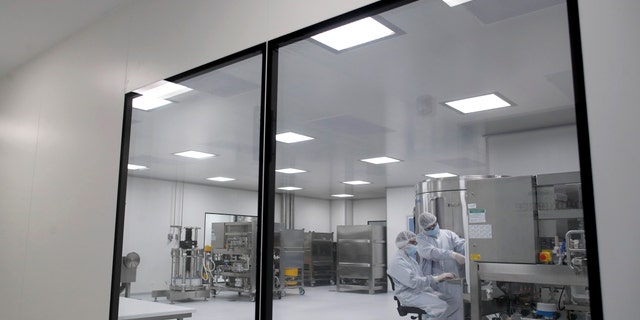COVID-19 testing shifts focus from precision to rapidity

Fox News Flash top headlines for September 9
Fox News Flash top headlines are here. Check out what’s clicking on Foxnews.com.
Public health officials increasingly argue that it is better to get fast and frequent COVID-19 test results that are reasonably accurate than more delayed, precise conclusions.
The Wall Street Journal reported Tuesday that diagnostic companies are hurrying to develop quicker and more affordable tests, and those that can be done in offices and nursing homes are becoming more prevalent.
Several companies have also started to work on rapid at-home tests, although none are currently authorized for individual use.
STOOL TESTING FOR CORONAVIRUS MAY BE EFFECTIVE IN CHILDREN AND INFANTS, REPORT SAYS
The U.S. Food and Drug Administration has authorized four antigen-based rapid tests thus far, and test-makers have vowed to produce tens of millions in the next few months.
Abbott Laboratories most recently announced a test that costs $5 and is the size of a credit card.

While tests that don't require a lab tend to be less sensitive than “gold standard” laboratory-based options, medical experts assert that repeat testing can make up for the gap.
Most diagnostic testing in the United States is processed using a technique called rt-PCR, or reverse transcription polymerase chain reaction, that searches for the virus’s genetic material and amplifies it.
While the tests are extremely sensitive, they come at a hefty price.
Any efforts to shift to cheaper and more routine testing among asymptomatic carriers would require a clear demarcation between testing for patient diagnosis and testing for public health screening.
Physicians need tests that are as accurate as possible, even if results take longer, while public health screening would be served more effectively with real-time results.
In addition, antigen tests are better at identifying cases when people have more of the novel coronavirus in their system. More than two dozen states, cities and tribes have partnered with the Rockefeller Foundation to acquire millions of antigen tests.

Laboratory technicians work at the mAbxience biopharmaceutical company on an experimental coronavirus vaccine developed by Oxford University and the laboratory AstraZeneca in Garin, Argentina.
(AP Photo/Natacha Pisarenko, File)
Trump administration testing coordinator Adm. Brett Giroir confirmed last week that the federal government has also placed large orders for antigen tests to be sent to nursing homes, schools and first responders.
Last week, the National Institutes of Health said it would award $129.3 million in additional grants to companies working as a part of the Rapid Acceleration of Diagnostics (RADx) Initiative.
Yet at-home test manufacturers need to prove to the FDA that the general public can grasp the instructions, take the test and interpret results correctly by themselves; there is an additional set of standards added to the checklist for a test that can screen asymptomatic people.
While the agency has noted that sensitivity rates lower than those of PCR diagnostic tests might be acceptable, they require rapid tests to have comparable accuracy to PCR.

Follow-up testing to confirm results may also be necessary, and that's only one hurdle. Even after more rapid tests are approved, manufacturers will have to produce enough of them for widespread use and the results will have to make it back to public health officials.
CLICK HERE FOR THE FOX NEWS APP
There are currently over 6.3 million confirmed COVID-19 cases in the U.S. and almost 190,000 reported deaths.
Source: Read Full Article
